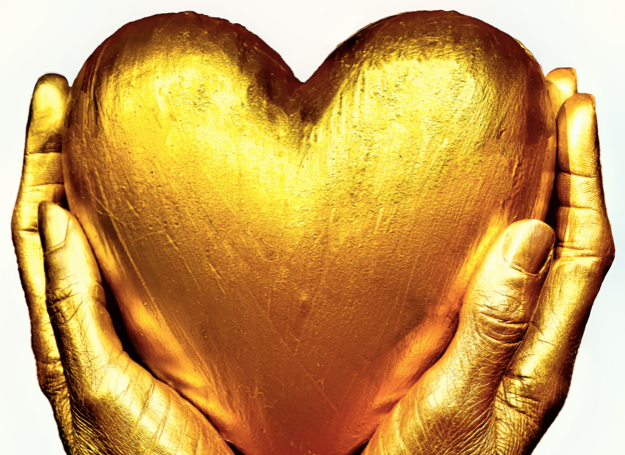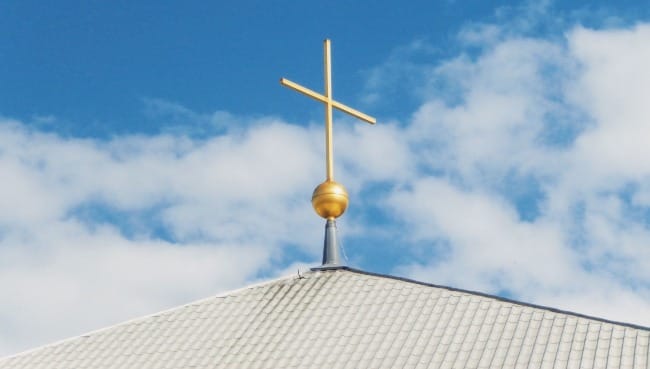Here is the sixteenth installment of our Exodus series. You can take a few minutes to read Exodus 32 HERE. You can access the whole series HERE. We will walk through the passage looking for ecotheological themes, and consider implications for ecological discipleship. Comments and questions are welcome.

All That's Gold Does Not Glitter
Chapter 32 shifts the scene from Moses and God on Mount Sinai to the anxious Israelites below. Moses has been receiving instructions on how the people are to live as servants of the LORD, which includes detailed construction plans for a tabernacle that will enable God to dwell among the people. The tabernacle was meant to echo Genesis 1 and 2 as a microcosm of creation that would keep the people connected to God as they partnered with God in the work of renewing creation. But as Moses receives this beautiful vision at 15,000 feet, the people down below get anxious about Moses' long absence, and begin to enact their own version of Genesis 3.
The Israelites are tired of Moses' absence and, by implication, God's absence. So, like Adam and Eve, they take matters into their own hands, demanding that Aaron, their surrogate leader, "make us a god who will go before us." Instead of telling them how foolish it would be to manufacture a deity, and how insulting it would be to spurn the God who has delivered them from Egypt, Aaron capitulates and forges a golden calf from some of the plunder the people took with them from Egypt. Aaron then sanctions a form of worship centered on the new idol, and the people are satisfied.
God, however, is less than pleased. In fact, God is angry enough to tell Moses he is going to destroy the people and begin again with Moses. Surprisingly, Moses' intercession on the people's behalf changes God's mind. Moses then hikes down the mountain and, when he sees what is actually going on, gets angry himself. When the dust clears, the stone tablets which defined the future God-Israel relationship are broken, the golden calf has been ground into powder (which the Israelites have been forced to drink), several thousand of the people are dead, and those who remain alive are struck with some kind of plague.
The people begin to repent, but their future with God is now uncertain.
Our Own Uncertain Future
One of the reasons Exodus is such a powerful story is because, in its particularity, it highlights universal themes that have been lived out over and over again: the struggle for freedom, the fall of the powerful, the difficult journey of transformation, the challenge of faithfulness, the nature of God, the drama of redemption. These themes are played out again and again in our personal lives and communities - and now they are being played out on a planetary scale.
Having created idols of unfettered technology and human ingenuity, we have set ourselves up as gods of the earth. Now, as we face the consequences of such unbridled power and ambition, we are drinking the bitter water of our idolatry. I'm not one for "doomerism," but I think we need to recognize the real damage that we have done, and the very uncertain future that we face. We are in need of true repentance - the changes of mind, heart, and action that can reset the course of our lives. We hear such a call from scientists, activists, and those on the front lines of planetary change. Time will tell how deeply we heed their call. Unfortunately, we do not hear enough from followers of Jesus.

Too Many Aarons in the Fire
One of the main reasons for this lack of Christian engagement is the failure of our leaders. Too many pastors, theologians, and other ministry professionals have played the part of Aaron. Some have helped create an idol of personal salvation, which satiates people's fears, and devalues the material creation, with promises of a distant, ethereal heaven where they can float around in eternal bliss. Others have forged an idol of social salvation that prioritizes and isolates human need over the needs of our fellow creatures (and the earth) to such an extent that the whole community of creation suffers. The golden crosses that grace many of our churches have, in many cases, come to symbolize a faith that separates humans from creation and tacitly blesses our domination and destruction of the earth.
These are harsh words for Christian leaders, but I write them from inside the camp, as a leader who knows knows well the trials and temptations that come with positions of authority and responsibility. I have certainly failed, and call my fellow leaders to repentance as one who is on the journey. But it is not just leaders who need to change.
Not Enough Intercessors on the Mountain
One of the amazing aspects of Exodus 32 is the way it features the very real relationship between God and Moses. God is not a rigid, dispassionate deity guiding the world like a clockmaker. God is more like a passionate parent who loses their cool from time to time but is, essentially, lovingly committed to their children's good. Moses, for his part, is no timid receiver of divine speech. He is bold enough to remind God of promises that have been made, and courageous enough to offer himself in place of the people as God's judgment percolates. And Moses changes God's mind! Old Testament scholar Terence Fretheim describes the dynamic between Moses and God this way:
"This text lifts up the extraordinary importance of human speaking and acting in the shaping of the future. Simply to leave the future in the hands of God is something other than what God desires. Simply to leave the future in the hands of the people is not a divine desire either."
Ecological disciples are called to engage with God prayerfully and practically as we do our part to shape the future. This means we must resist the urge to privatize our faith, retreat to pristine places, or connect with God in a form of sanitized spirituality. We must also resist the urge to act by taking matters into our own hands - today's solutions often become tomorrow's idols. This is a difficult balance to maintain, which is why we need each other.
An uncertain future invites us to take a deep look at the idols we have created, listen for the voices that are calling us in new directions, and offer ourselves as partners with God as we journey towards the unknown.
With you on The Way,
James